 W
W"1, 2, 3, Red Light" is a song written by Sal Trimachi and Bobbi Trimachi and was recorded by 1910 Fruitgum Company for their 1968 album, 1, 2, 3, Red Light. The song charted highest in Canada, going to number 1 on the RPM 100 national singles chart in 1968. In the same year in the US, it went to number 5 on the Billboard Hot 100 and was on the charts for 13 weeks.
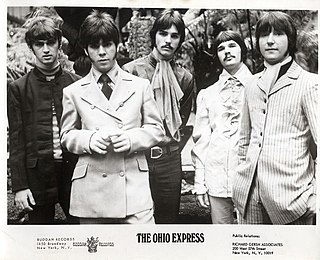 W
WThe Ohio Express is an American bubblegum pop band, formed in Mansfield, Ohio, in 1967. Though marketed as a band, it would be more accurate to say that the name "Ohio Express" served as a brand name used by Jerry Kasenetz's and Jeffry Katz's Super K Productions to release the music of a number of different musicians and acts. The best known songs of Ohio Express were actually the work of an assemblage of studio musicians working out of New York, including singer/songwriter Joey Levine.
 W
W"Do I Love You" is a song co-written and recorded by Paul Anka, from his 1972 eponymous LP. Released as an advance single in late 1971, "Do I Love You" reached number 14 on the Easy Listening Singles charts of both the U.S. and Canada, number 16 on the Canadian Pop chart, and was a modest hit on the U.S. Hot 100 as well. As with the earlier "My Way", it was adapted from a French-language song popularized by Claude François, and Anka composed the English lyrics.
 W
WThe Ohio Express is an American bubblegum pop band, formed in Mansfield, Ohio, in 1967. Though marketed as a band, it would be more accurate to say that the name "Ohio Express" served as a brand name used by Jerry Kasenetz's and Jeffry Katz's Super K Productions to release the music of a number of different musicians and acts. The best known songs of Ohio Express were actually the work of an assemblage of studio musicians working out of New York, including singer/songwriter Joey Levine.
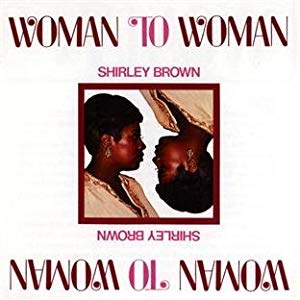 W
W"Woman to Woman" is the title of a 1974 deep soul single recorded by Shirley Brown for whom it was a #1 R&B hit.
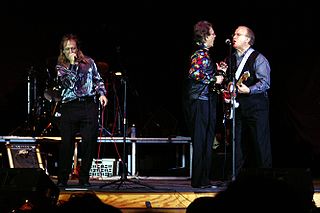 W
WThe 1910 Fruitgum Company is an American bubblegum pop band of the 1960s. The group's Billboard Hot 100 hits were "Simon Says", "May I Take a Giant Step", "1, 2, 3, Red Light", "Goody Goody Gumdrops", "Indian Giver", "Special Delivery", and "The Train".
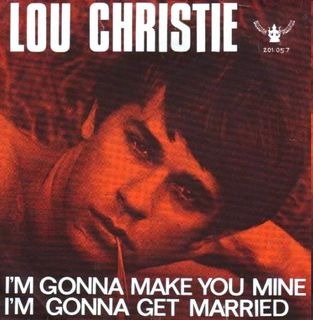 W
W"I'm Gonna Make You Mine" is a song released in 1969 by Lou Christie. It was featured on his 1969 album I'm Gonna Make You Mine, arranged by Stan Vincent and produced by Vincent and Mike Duckman.
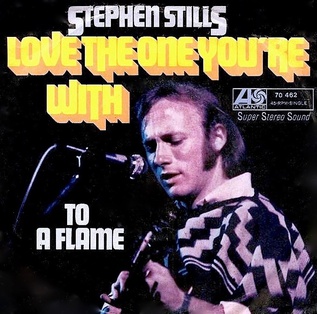 W
W"Love the One You're With" is a song by folk rock musician Stephen Stills. It was released as the lead single from his debut self-titled studio album in November 1970. The song, inspired by a remark Stills heard from musician Billy Preston, became his biggest hit single, peaking at No. 14 on the Billboard Hot 100 in early 1971. David Crosby and Graham Nash, Stills' fellow members of Crosby, Stills & Nash, provide background vocals on the song. The song was also covered by a number of artists, notably the Isley Brothers, The Meters, Bucks Fizz and Luther Vandross.
 W
WThe Ohio Express is an American bubblegum pop band, formed in Mansfield, Ohio, in 1967. Though marketed as a band, it would be more accurate to say that the name "Ohio Express" served as a brand name used by Jerry Kasenetz's and Jeffry Katz's Super K Productions to release the music of a number of different musicians and acts. The best known songs of Ohio Express were actually the work of an assemblage of studio musicians working out of New York, including singer/songwriter Joey Levine.
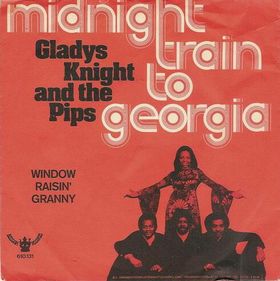 W
W"Midnight Train to Georgia" is a 1973 number-one hit single by Gladys Knight & the Pips, their second release after departing Motown Records for Buddah Records. Written by Jim Weatherly, and included on the Pips' 1973 LP Imagination, "Midnight Train to Georgia" won the 1974 Grammy Award for Best R&B Vocal Performance By A Duo, Group Or Chorus and has become Knight's signature song.
 W
W"Moonflight" is a song written and originally recorded by Vik Venus in 1969. It is a 'break-in' song, with popular hits of the day interspersed at humorous points throughout the song in response to spoken-word prompts, in the style of Dickie Goodman, who had many such hits. "Moonflight" became a hit during the summer of '69, reaching #38 U.S. Billboard and #23 Cash Box. It also charted in Canada, where it reached #20. It did best in South Africa, however, where it reached #7.
 W
W"More, More, More" is a song written by Gregg Diamond and recorded by American disco artist Andrea True. It was released in February 1976 and became her signature track and one of the most popular songs of the disco era. In the U.S., it reached number four on the Billboard Hot 100 and spent three weeks at number three on the Cashbox chart in July of that year. In Canada, it was a number-one hit.
 W
W"N.Y., You Got Me Dancing" is a song written and produced by Gregg Diamond and performed by the Andrea True Connection. The song appeared on her 1977 album, White Witch.
 W
W"O-o-h Child" is a 1970 single recorded by Chicago soul family group the Five Stairsteps and released on the Buddah label. The Five Stairsteps had previous peripheral success recording in Chicago with Curtis Mayfield; when Mayfield's workload precluded his continuing to work with the group they were reassigned to Stan Vincent, an in-house producer for Buddah Records, who had recently scored a Top Ten hit with the Lou Christie single "I'm Gonna Make You Mine". The Five Stairsteps' debut collaboration with Vincent was originally formatted with the group's rendition of "Dear Prudence" as the A-side with Vincent's original composition "O-o-h Child" as B-side. However, "O-o-h Child" broke out in the key markets of Philadelphia and Detroit to rise as high as #8 on the Billboard Hot 100 in the summer of 1970. The track's R&B chart impact was more muted with a #14 peak, although "O-o-h Child" is now regarded as a "soft soul" classic. Billboard ranked the record as the No. 21 song of 1970.
 W
W"Oh Happy Day" is a 1967 gospel music arrangement of the 1755 hymn by clergyman Philip Doddridge. Recorded by the Edwin Hawkins Singers, it became an international hit in 1969, reaching No. 4 on the US Singles Chart, No. 1 in France, Germany, and the Netherlands and No. 2 on the Canadian Singles Chart, UK Singles Chart, and Irish Singles Chart. It has since become a gospel music standard.
 W
W"Ruby Tuesday" is a song recorded by the Rolling Stones in 1966, released in January 1967. The song became the band's fourth number-one hit in the United States and reached number three in the United Kingdom as a double A-side with "Let's Spend the Night Together". The song was included in the American version of Between the Buttons.
 W
WIndian Giver, the fourth studio album by American bubblegum pop group the 1910 Fruitgum Company, was released in 1969. The title song written by Bobby Bloom, Ritchie Cordell, and Bo Gentry peaked at #5 on the Billboard Hot 100. The song "Special Delivery" went to #38 on the Billboard Hot 100. The album went to 147 on the Billboard 200.
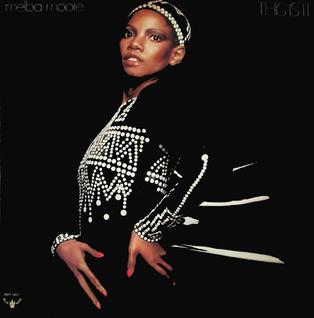 W
W"This Is It" is a 1976 disco song written by Van McCoy and performed by Melba Moore for her fifth album of the same name.
 W
W"The Way We Were" is a song recorded by American singer Barbra Streisand for her fifteenth studio album, The Way We Were (1974). It was physically released as the record's lead single on September 27, 1973 through Columbia Records. The 7" single was distributed in two different formats, with the standard edition featuring B-side track "What Are You Doing the Rest of Your Life?" and the Mexico release including an instrumental B-side instead. The song was written by Alan Bergman, Marilyn Bergman and Marvin Hamlisch, while production was solely handled by Marty Paich. "The Way We Were" was specifically produced for the record, in addition to three other tracks, including her then-upcoming single "All in Love Is Fair" (1974).
 W
W"Welcome Me Love" is a 1969 song by The Brooklyn Bridge. It was issued as the B-side of "Blessed Is the Rain," but became a double-sided hit.
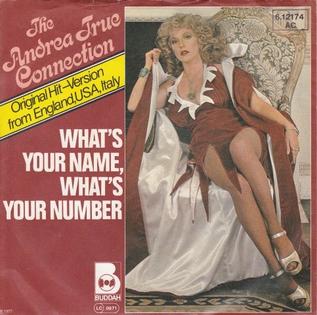 W
W"What's Your Name, What's Your Number" is a song written by Bobby Woods and Roger Cook and performed by the Andrea True Connection. The song reached #9 on the U.S. club chart, #34 in the UK, and #56 on the Billboard Hot 100 in 1977. The song appeared on her 1977 album, White Witch. The song was produced by Michael Zager.
 W
W"When I Die" is a 1969 hit single by Motherlode. It is the title track of their debut LP and was their only charting single.
 W
W"Worst That Could Happen" is a song with lyrics and music written by singer-songwriter Jimmy Webb. Originally recorded by the 5th Dimension on their 1967 album of nearly all-Jimmy Webb songs, The Magic Garden, "Worst That Could Happen" was later recorded by The Brooklyn Bridge and reached the Billboard Hot 100's top 40, at #38 on January 4, 1969, peaking at #3 on February 1-8, 1969.
 W
W"You're the Best Thing That Ever Happened To Me" — also known simply as "Best Thing That Ever Happened To Me" — is a song written by Jim Weatherly, and produced by Don Law. It was first recorded in 1973 by Ray Price from his album You're the Best Thing That Ever Happened To Me. The song enjoyed two runs of popularity, each by an artist in a different genre.
 W
W"Yummy Yummy Yummy" is a song by Arthur Resnick and Joey Levine, first recorded by Ohio Express in 1968. Their version reached No. 4 on the U.S. Pop Singles chart in June and No. 5 on the UK Singles Chart. It has since been covered by many artists. Ohio Express was a studio concoction and none of the "official" members appear on the record. Joey Levine sang lead vocals.